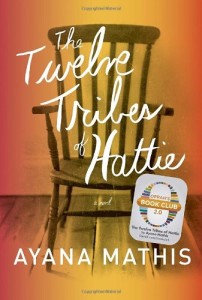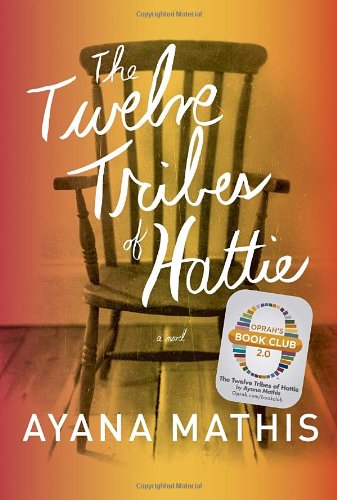 The Twelve Tribes of Hattie
The Twelve Tribes of Hattie
by Ayana Mathis
Alfred A. Knopf, 243 pages, $24.95
IT IS POSSIBLE that you’ve already heard of The Twelve Tribes of Hattie, which was a featured selection of Oprah Winfrey’s Book Club, still a potent force in publishing and enough to guarantee that Ayana Mathis’ debut novel would be an instant best-seller. The book is of a piece with many of Winfrey’s selections: a finely written, often poetic piece of fiction featuring a strong if flawed female character at the heart of the story. It’s also a useful introduction to a chapter of American history that many white readers may not know about.
The novel spans 55 years in the life of Hattie Shepherd. Newly arrived in Philadelphia as part of the Great Migration out of the Jim Crow South, we first meet Hattie already married and pregnant at seventeen, holding her twins, Philadelphia and Jubilee, in her arms as they die of pneumonia. Life doesn’t get any easier from that point on. The book’s subsequent chapters follow each of Hattie’s subsequent children through a telling episode in their lives and culminates with her caring for a grandchild, Sala, whose mother was plagued by mental illness. Each chapter links the family members in temperament and circumstance even as their relationships fracture, or fail to cohere, over time.
Early in the story there’s a brief flashback to Hattie’s arrival in Philadelphia with her mother and sisters. Briefly separated from them in the crowded train station, she sees a “Negro woman” approach a white flower vendor and buy a bouquet, handing her money over without cowering (“Had their hands brushed?”). When the woman accidentally knocks over the display, Hattie braces for the inevitable assault, and is shocked when the woman apologizes, pays for the damage, and leaves in peace. Reunited with her mother and sisters, her first comment is, “I’ll never go back. Never.” It’s quickly over with, but speaks volumes.
That pursuit of progress comes at great cost to Hattie and her children (the “tribes” of the title). “Six” becomes a preacher despite a deep knowledge that he’s a fraud. Franklin comes undone in the midst of combat in Vietnam, shooting at nothing and obsessing over his ruined relationship back home. Giving baby Ella to her sister to care for seems to ensure that Hattie will never have the opportunity to love her children without fear and disappointment souring the relationship, though the end of the novel offers hope that things may change, albeit very late in the going.
Floyd is the first of Hattie’s surviving children that we meet on the page. A jazz musician with talent and potential, he travels from nightclub to nightclub and woman to woman, so much so that he’s known as “Lady Boy Floyd.” Or could that nickname be a teasing jab at Floyd, who also sleeps with men on the down low? Mired in denial, he has left Philadelphia to tour the South, where he meets Lafayette, a dreamy, effeminate man whose comfort in his own skin registers as a confrontation to Floyd’s false bravado. Lafayette comes to his show but is harassed and ultimately tossed out of the club. Floyd waffles instead of intervening, finishes his show, and is later confronted by a stranger and three times denies knowing the young man, leaving town alone and unfulfilled, but physically unharmed.
While much of the narrative in The Twelve Tribes of Hattie is freighted with sorrow, Mathis makes it compulsively readable. Part of this stems from her use of unadorned language that finds poetry in the everyday. When Hattie’s husband August tries to offer her some comfort in the face of grief, she hurls a Mason jar with two butterflies inside at the wall. “The two of them watched the butterflies, stunned and struggling in the broken glass.” It’s a brutal and perfect metaphor for the wreckage of their marriage.
With one necessary exception, Mathis steers away from set pieces that feel familiar from other books or movies set in the segregated South. By training her focus on the specifics of one particular family, she finds a more universal story and offers a fresh look at how the Great Migration offered great hope, but how it often proved costly in crucial ways to families and individuals.






